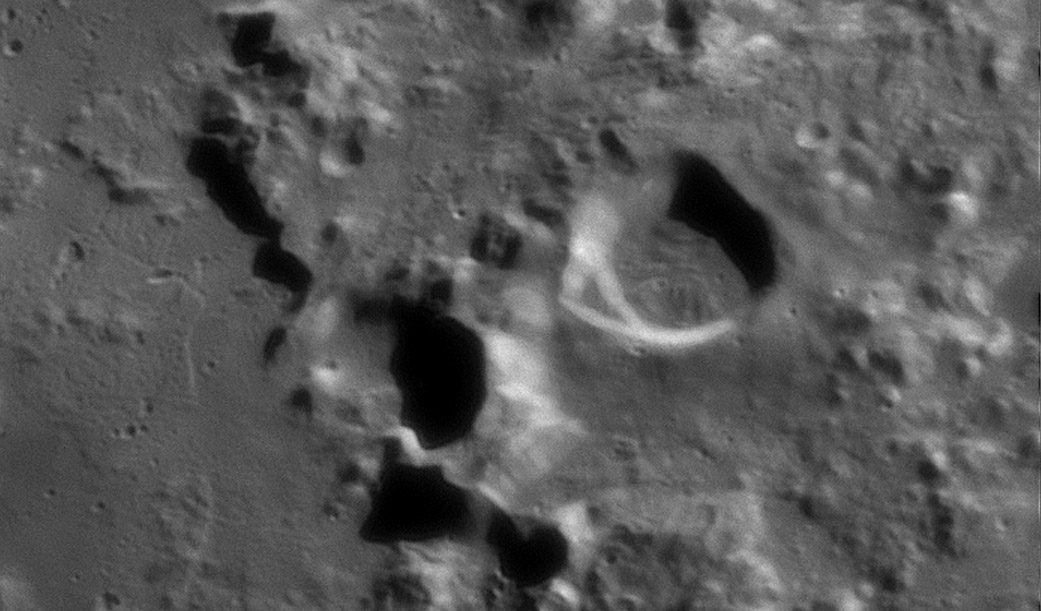Difference between revisions of "April 16, 2011"
| Line 3: | Line 3: | ||
<!-- ws:start:WikiTextHeadingRule:0:<h1> --> | <!-- ws:start:WikiTextHeadingRule:0:<h1> --> | ||
<!-- ws:start:WikiTextLocalImageRule:6:<img src="/file/view/LPOD-Apr16-11.jpg/220729166/LPOD-Apr16-11.jpg" alt="" title="" style="width: 800px;" /> -->[[File:LPOD-Apr16-11.jpg|LPOD-Apr16-11.jpg]]<!-- ws:end:WikiTextLocalImageRule:6 --><br /> | <!-- ws:start:WikiTextLocalImageRule:6:<img src="/file/view/LPOD-Apr16-11.jpg/220729166/LPOD-Apr16-11.jpg" alt="" title="" style="width: 800px;" /> -->[[File:LPOD-Apr16-11.jpg|LPOD-Apr16-11.jpg]]<!-- ws:end:WikiTextLocalImageRule:6 --><br /> | ||
| − | image by [mailto:mwirths@starband.net | + | image by [mailto:mwirths@starband.net Michael Wirths], Baja Dark Skies Inn, Baja California, Mexico<br /> |
<br /> | <br /> | ||
Calippus and Calippus C are two circular features of almost the same size. C is half missing; <br /> | Calippus and Calippus C are two circular features of almost the same size. C is half missing; <br /> | ||
| Line 15: | Line 15: | ||
any rays that would prove it are long since space-weathered to obscurity.<br /> | any rays that would prove it are long since space-weathered to obscurity.<br /> | ||
<br /> | <br /> | ||
| − | <em>[mailto:tychocrater@yahoo.com | + | <em>[mailto:tychocrater@yahoo.com Chuck Wood]</em><br /> |
<br /> | <br /> | ||
<strong>Technical Details</strong><br /> | <strong>Technical Details</strong><br /> | ||
| Line 23: | Line 23: | ||
<strong>Related Links</strong><br /> | <strong>Related Links</strong><br /> | ||
Rükl plate [http://the-moon.wikispaces.com/R%C3%BCkl+13 13]<br /> | Rükl plate [http://the-moon.wikispaces.com/R%C3%BCkl+13 13]<br /> | ||
| − | Another [http://www.lpod.org/index.php?s=calippus | + | Another [http://www.lpod.org/index.php?s=calippus view]<br /> |
| − | Mike's new [http://www.bajadarkskies.com | + | Mike's new [http://www.bajadarkskies.com website, observatory and home]<br /> |
<br /> | <br /> | ||
<hr /> | <hr /> | ||
Revision as of 16:33, 11 January 2015
Almost Twins

image by Michael Wirths, Baja Dark Skies Inn, Baja California, Mexico
Calippus and Calippus C are two circular features of almost the same size. C is half missing;
perhaps a birth defect, resulting from its formation on the front of the Caucasus Mountains.
There was nothing to shore up its western wall, and later Imbrium lavas covered the spray of
ejecta that would have made a wall if there was anything to built on. With a diameter of 32
km, Calippus would be expected to have wall slumps and central peak, perhaps even massive
stepped terraces like Godin. But its steep walls and peakless interior makes it look more like
Proclus. In fact, the alcove on the western rim suggests that Calippus - like Proclus - formed
by an oblique impact. But Calippus is old enough - notice the lack of rim crest sharpness - that
any rays that would prove it are long since space-weathered to obscurity.
Chuck Wood
Technical Details
2011-04-11 20:37 PST. Starmaster 18" (Zambuto optics) + Lumenera Infinity 2-2 + TT R/IR filter + 4X's Televue Powermate + Lucam recorder; Avistack, Photoshop CS
Related Links
Rükl plate 13
Another view
Mike's new website, observatory and home



